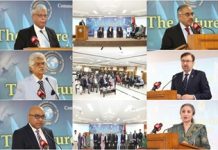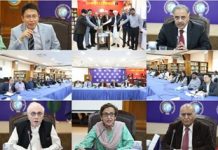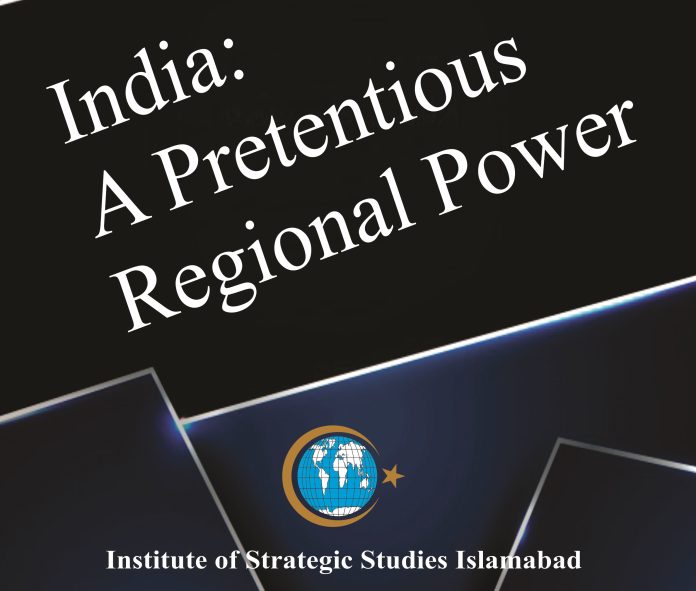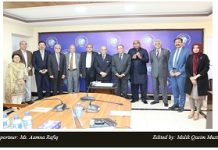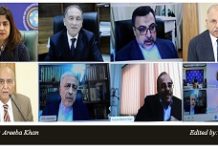CONCEPT NOTE
There is an old saying that power truly lies where people believe it to lie. Hence, the ‘great’ or ‘super’ power statuses are rarely self-anointed. However, one such example exists in the form of our Eastern neighbor India, the massively populated and highly divided state trying to masquerade as a ‘regional power’. Power in international politics pertains to the ability of a state to significantly influence the behavior of other states through use of its own strategic assets such as its own indigenous military prowess and political persuasiveness. India seems to have confused the outreach of its ‘soft’ power with illusion of having achieved the ‘regional power’ status in Asia. But facts are quite contrary to this delusion.
It was Nehru who said that external policy of a state is the reflection of its internal policy. In India’s case however, one could say ‘fallacy’ instead of ‘policy’. A glimpse at the internal state of affairs in India reveals the fissures within. Staggering poverty, weak institutions, poor governance, increasing political, social, religious and ethnic divisions and lack of a strategic vision is what ails India in the true sense. According to Asian Development Bank estimate as of 2015, 21.9 per cent of Indians, that is about 284 million people, lived below the poverty line of $1.90, or about Rs. 123 a day. Another recent study suggests that by 2040, there will be no drinking water in almost all of India. Burgeoning population needs and environmental crisis are the real issues that plague India.
However, instead of remedying these internal fractures, the Modi government focuses its attention on tyrannizing its own Muslim minority, as well as the freedom fighters of Kashmir. The agenda of Hindu Rashtra is tearing apart the diverse internal structure of the Indian society. Dignity and safety of human life has become more and more fragile with every passing day in the Indian society. With record cases of assault and rape of women being reported every day, all non-Hindu communities especially Muslims are highly unsafe. The point of significance here is that this insecurity prevailing within the Indian society ensues from inaccessibility of government institutions and structures. A report from the National Bureau of Asian Research stated in its findings as far back as 2011, “Unless India is able to develop social and political delivery systems that distribute the benefits of economic growth beyond the privileged few, the country’s potential to be a regional or global power will be limited.”
Such xenophobic tendencies are the new normal in the Indian society where Saffron terrorism has taken root in all high offices. These political offices governing the country capitalize on the Muslim suffering in India and through perpetuating anti-Pakistan propaganda. A fitting example of this is the National Security Advisor of Prime Minister Modi, Ajit Doval, the hardened spy whose own writings focus on creating non-state actors to sabotage the national security interests of Pakistan. This is precisely why the blame placed at Pakistan for state-sponsored terrorism by Indian establishment reeks of hypocrisy. This type of hate-mongering is not an attribute of any country that aspires to gain regional significance. It merely stirs up communal violence within the society and creates more regional enemies in place of a docile neighborhood around India. Lack of strategic far-sightedness in Indian policymaking is its biggest fall-out as it has troubled its relations with its neighbors. Despite numerous commonalities of language, culture and ethnicity, the differences between India and its smaller neighbors only keep widening.
| Objectives:
1) Map the existing narratives on traditional and non-traditional security challenges to India, accounting for all dimensions and perspectives. 2) Analyze the impact of these challenges on Pakistan and determine how pragmatic and relevant they are within the current regional strategic environment. 3) Produce policy-relevant recommendations by bringing together a core group of Pakistani and international experts, researchers and officials specializing in non-traditional security environment of India. |
In the contemporary context of regional connectivity, where destinies of all countries in a neighborhood are tied together, the uncertainty of Indian strategic ambitions quite adversely impact stability of the entire region. It is imperative that fissures in the Indian state structure and society be highlighted so that regional countries and the international community observe fallibilities and misdemeanor of Indian state and its external policy. In this regard, the Institute of Strategic Studies Islamabad organized a one-day international seminar titled “India: A Pretentious Regional Power”.




